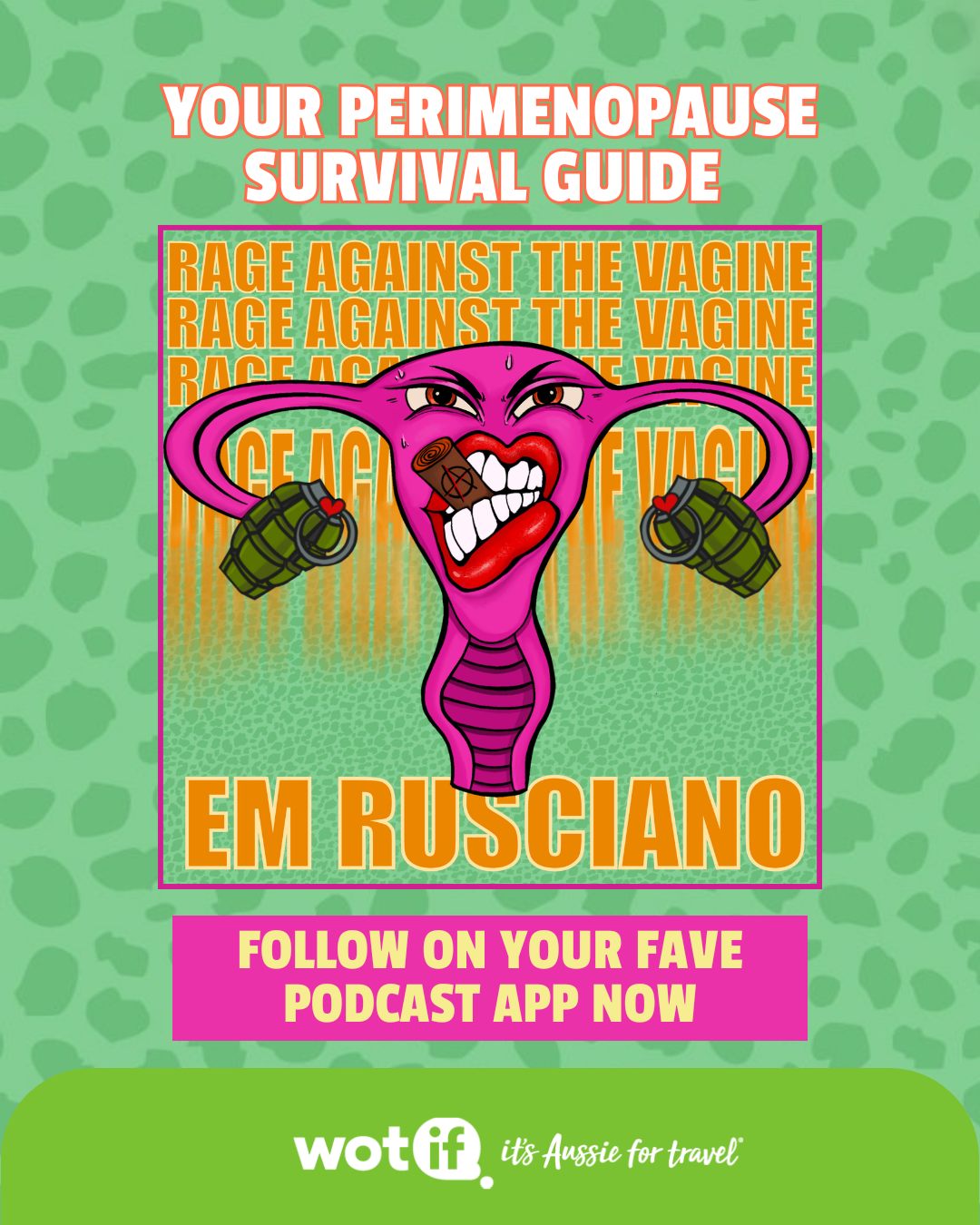Rage Against the Vagine is a six-part podcast series from Em Rusciano about perimenopause, patriarchy, and the midlife medical gaslighting we’re done putting up with.
Combining lived experience with insights from top menopause-informed doctors, researchers, psychologists and some famous friends of the show in the thick of perimenopause, this series gets honest about what’s happening to our bodies and brains during perimenopause, and why so few of us were warned.
Each episode dives into one of six big questions – from “Why the f*ck didn’t anyone tell us?”to “How the f*ck do I get help?” Expect documentary-style storytelling, fierce honesty, and the kind of clarity you wish you’d had years ago. You’ll laugh, cry, maybe scream into a pillow…but hopefully walk away with language, validation, and strategies to take into your own life (and a menopause-informed GP appointment).
This podcast isn’t medical advice. It’s about sharing stories and expert perspectives to help you feel seen. Science is still catching up to lived experience, and not every doctor is trained in menopause care. If something here resonates, take it to a trusted healthcare professional.
Your story deserves to be heard and validated.
All episodes are now streaming.

”
LISTEN:
Keen to get your hands on some RATV merch?
Email us here to be alerted when new merch drops!
A Note From Em
This is a project I genuinely don’t have time to make, but it’s shouting at me and waving its little hand, and I simply can’t ignore it. Perimenopause has been one of the most disruptive forces in my life, and every day, hundreds of women and AFAB people in my community tell me they’re confused, overwhelmed, and not sure what to do.
There’s so much information and misinformation from a new breed of menopause influencers and women’s health gurus, and for my largely neurodivergent community, that noise can be paralysing. I want to make a resource, like I did with Anomalous, that’s stripped back, clear, and not overwhelming. Every single woman or person with ovaries will go through this, yet no one’s really focusing on the most confusing part, perimenopause.
Menopause is relatively straightforward to diagnose: a year after your last period. But perimenopause? There’s no definitive test, just a checklist of symptoms. It could start in your late 30s or late 40s, some GPs don’t believe in it, and many women won’t talk about it. For me, the 10 years leading up to menopause are often the hardest, and that’s where I want to shine the light.
